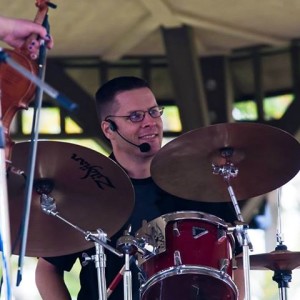Admit it.
You’ve wondered to yourself – How will I be remembered?
Is this as good as it gets for me?
Am I doomed to a life of fatigue, worry, and dependence?
For six years, I’ve I tried to find a logical, scientifically relevant, “do-it-yourself” fix for this nasty disease. Curing it wasn’t really my priority since a cure means different things to different people. I figured that if I could stop, or at least slow down, progression, my body was capable of healing itself. I tried every hippy-fix I could think of. I’m sure I drove my family nuts doing the things I was doing, but when you’re desperate, that’s the least of your worries.
I wasn’t always that way, though. I was living the life of the all-American guy until June of 2008. I went to college, had a decent job, played in a band, ran marathons, married my high school sweetheart and had a couple of great looking boys. I even went back to school to earn my master’s degree.
It’s funny how quickly your life can change.
Throughout my 20s and into my 30s, I was often referred to as “pretty boy” by my friends from high school. I had long, flowing hair, I was well groomed, I hadn’t gained weight, and I was pretty athletic. This was my identity. This defined me. It’s pretty hard to go to the doctor and admit something is wrong when your reputation says that you’re bullet-proof.
At first, I thought I was just out of shape. When you are defined by your ability to get things done, your first thought is that you haven’t been working hard enough. You don’t “deserve” it. As things got progressively worse, I became a quitter. It’s easy to give up on things like softball and poker when your kids are growing. They became my excuse for everything.
I had to be a little more creative when it came to other things, like my speech, which was clearly affected in the spring of 2006. That was another chance for the doctor to give me an excuse, which I ran with. I remember it like it was yesterday, “you’re working full-time, going to school full-time, you have a family, and you’re not sleeping. I get this way when I’m tired and stressed, too.” I knew that this was different, but am I really going to argue with a doctor?
It was in early 2008 that I realized I couldn’t hide things anymore. I took a header on an indoor track and almost peed my pants while trying to run. I was perceived as drunk and given a sobriety test, which I failed, and ultimately a breathalyzer, which I aced. I couldn’t even chase the ball down while coaching my son’s tee-ball team.
Then, on June 21st of 2008, the day before my 12th wedding anniversary, I got the news. I was depressed. My life had forever changed. I was certain that I’d be in a  wheelchair in a few years. I didn’t realize at the time, though, how lucky I was.
wheelchair in a few years. I didn’t realize at the time, though, how lucky I was.
This was the beginning, not the end. I am Jim Turk, the person that has a great attitude and is an honest and reliable advocate (and happens to have multiple sclerosis) – not the pretty-boy/musician/athlete that my friends wanted me to be (although I am still awfully good looking!). This is my passion. This is where I want to be.
It started with a clinical trial. That was my “in.” Once I got over the idea of being a different person, physically, it became a great ice-breaker as I brought attention to the disease and advocated for research participation. You see, I swallowed parasite eggs. That seemed to grab peoples’ attention! (you can read a BBC article about it, here: (click here))
I made a lot of new friends, and I discovered what strength really means. I frequently meet people that are much worse-off than me but have a better attitude. I talk to people that have lost their job and are raising kids on their own with no one to help them do things like mow the lawn, get groceries, or clean the house, but are strong enough to see the bright side.
I have spent a lot of time focusing on my disease; drawing attention to the problems as I try to fix them. I think that there is value in giving your body it’s best chance at recovery, but concentrating on your weaknesses can be detrimental, too.
I could spend my days dwelling on my diminishing abilities or wondering what tomorrow will bring, but that’s not productive or healthy. I find that it’s much more satisfying to be grateful for what I have, to live in the moment, and to use my strengths to serve others. Everyone has their problems and there are certainly a lot of people that have it worse. They are the strong ones. This is what I should have been focusing on all along. I’m lucky to have figured it out.
I challenge anyone reading this to do the same. Look at the positive aspects of your illness. Make someone smile. Discover new strengths. Give yourself new purpose. I did.

